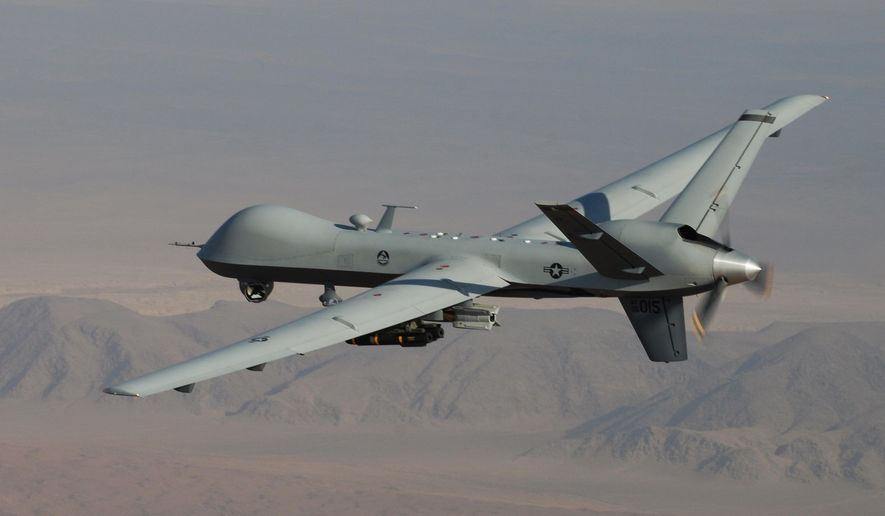The Pentagon’s drone pilots are overworked and under “significant stress” from waging battles in the Middle East and spying on Islamic extremists.
Air Force officials announced Thursday that they have crafted a plan to alleviate the duress the Pentagon spy planes are experiencing from working 13 to 14 hours per day about six days a week.
Officials will redirect money from their tight fiscal budget to attract additional drone pilots with larger retention bonuses. In addition, the Air Force will actively seek volunteers and give drone pilots incentives not to leave their positions, said Air Force Secretary Deborah Lee James.
“The airmen who perform this essential mission do a phenomenal job, but talks with the RPA pilots and the sensor operators, and their leaders certainly told me — suggested to me — that this is a force that is under significant stress — significant stress — from what is an unrelenting pace of operations,” she said.
Drone pilots were asked to collect intelligence on Islamic State supporters in Iraq in Syria in late 2014 and to track Boko Haram militants in Africa after they kidnapped more than 200 girls last year.
Ms. James told reporters at a Jan. 15 Pentagon briefing that the demands of ongoing operations around the world have exacerbated the drone pilot shortage.
As a result, Air Force officials are trying to persuade 33 pilots who have the option to move on to other jobs at the end of the summer to reconsider their plans, Air Force Chief of Staff Gen. Mark Welsh said.
“We have just got to get ahead of this,” said Air Force Chief of Staff Gen. Mark Welsh.
The Air Force can train only 180 drone pilots a year, despite an annual need for 300, he said. The force loses about 240 drone pilots a year, “which is not a winning proposition for us,” he said.
“Our crew force out there actually will tell you they enjoy the mission, they like the work, they’re excited about the future,” Gen. Welsh said. “They’re just worn out, because this is not a new problem. It’s been going on since 2007, as the requirement keeps increasing and all our solutions to it keep lagging the requirement change.”
The Daily Beast reported this month that the Pentagon’s drone fleet was being strained to the “breaking point.” The situation is so dismal that the chief of Air Combat Command, which trains and equips the service’s combat forces, sent a memo to Gen. Welsh expressing his fears about the future, according to The Daily Beast.
“I am extremely concerned,” he said.
• Maggie Ybarra can be reached at mybarra@washingtontimes.com.




Please read our comment policy before commenting.